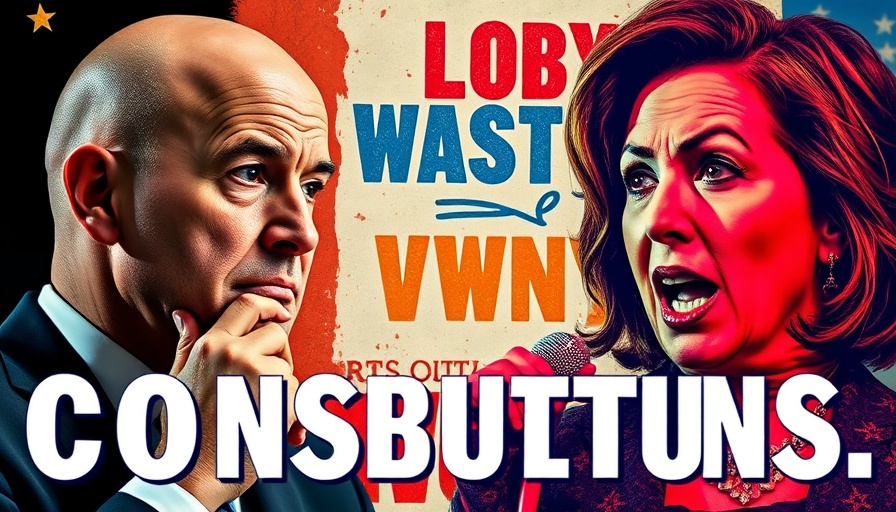
Understanding the International Outcry Over Gaza Aid
In a world witnessing unprecedented humanitarian crises, the call by 25 nations, including Britain, France, and Italy, for the Israeli government to improve its humanitarian aid delivery practices in Gaza has ignited significant discussions. This coalition's statement emphasizes an urgent need for a more effective strategy, criticizing the Gaza Humanitarian Foundation (GHF) and its inadequate aid distribution efforts.
The video 'Nations accuse Israel of 'drip feeding' aid to Gaza civilians' highlights critical insights about the ongoing humanitarian crisis in Gaza, prompting further analysis here.
The plight of Palestinians continues to escalate, with reports indicating that almost 900 people have been killed while attempting to access food, primarily around GHF sites. Humanitarian efforts have been described as insufficient, dangerous, and overly reliant on methods that undermine human dignity. The international community's growing frustration is palpable as the humanitarian situation deteriorates under the weight of conflict.
The Current Aid Infrastructure: Flaws and Challenges
The aid distribution system in Gaza has come under intense scrutiny for its inefficiencies. Amir Nada, a correspondent reporting from Jerusalem, highlighted that the recent blockade imposed by Israel severely limited aid access, putting thousands of lives at risk. With 6,000 trucks of food stuck at the Egyptian border, it’s hard to fathom why such abundant resources are not reaching those in need.
The World Food Program confirms that aid remains trapped due to complications coordinating with the Israeli military. The GHF has been criticized for not being able to meet the vast needs of the Palestinian population alone, exacerbating already tense conditions. Statistical data points to GHF's delivery of about 82 million meals since its establishment, which, given the population size, means less than a quarter of Gazans receive critical aid.
What Lies Ahead: Potential Solutions and Actions
The joint statement from nations reflects a deeper frustration with the ongoing violence and humanitarian implications of the war in Gaza. There exists a political interplay involved, as countries face internal pressure to respond decisively while balancing diplomatic relations with the United States. This situation is emblematic of international indecisiveness at a time when lives hang in the balance.
Moreover, the mention of potentially recognizing the state of Palestine signals a critical juncture; a shift in recognition could catalyze more substantial international actions. Future predictions suggest that sustained global pressure may compel Israel to reassess its military strategy in favor of humanitarian empathy, highlighting the human cost of political conflicts.
Emotional Impact and Human Dignity
The emotional toll on families remains profound, as highlighted by interviews from those with loved ones caught in the crossfire. The narrative of individuals like Udiggor, whose family is directly affected by the hostage crisis, underscores the urgent need for flesh-and-blood solutions over political wrangling. For many, behind the statistics are real human stories filled with anxiety, grief, and destruction.
By revealing these personal experiences, we emphasize that the stakes cannot be reduced to mere political dialogue—lives are at stake, and the demand for immediate action resonates powerfully. What is now at play is the dignity of the Palestinian people; restoring that dignity must be the foremost priority.
Understanding the Broader Context
The humanitarian crisis in Gaza is intertwined with global geopolitical dynamics and national interests. The recent surge of bipartisan support for urgent humanitarian action and the push for a ceasefire signals that perhaps this time, international audiences might not passively observe but actively engage. The next steps toward international resolution hinge upon the willingness of world leaders to prioritize human rights and dignity over political expediency.
The acknowledgment of these critical issues reflects a wake-up call to all involved in the humanitarian response—reassessing strategies, ensuring aid reaches those most in need, and creating safe passage corridors will define future outcomes. Policymakers must grapple with the reality that humanitarian crises such as this one require innovative and compassionate solutions that transcend mere statements of support.
In the end, as citizens of the U.K. concerned with budget and resource allocation, it’s crucial to advocate for international actions that yield effective results—not just token gestures. While we balance our own financial priorities, we must also reflect on our humanitarian responsibilities. The world watches as the situation in Gaza unfolds; now is the time for your voice to join the conversation.
 Add Row
Add Row  Add
Add 




Write A Comment